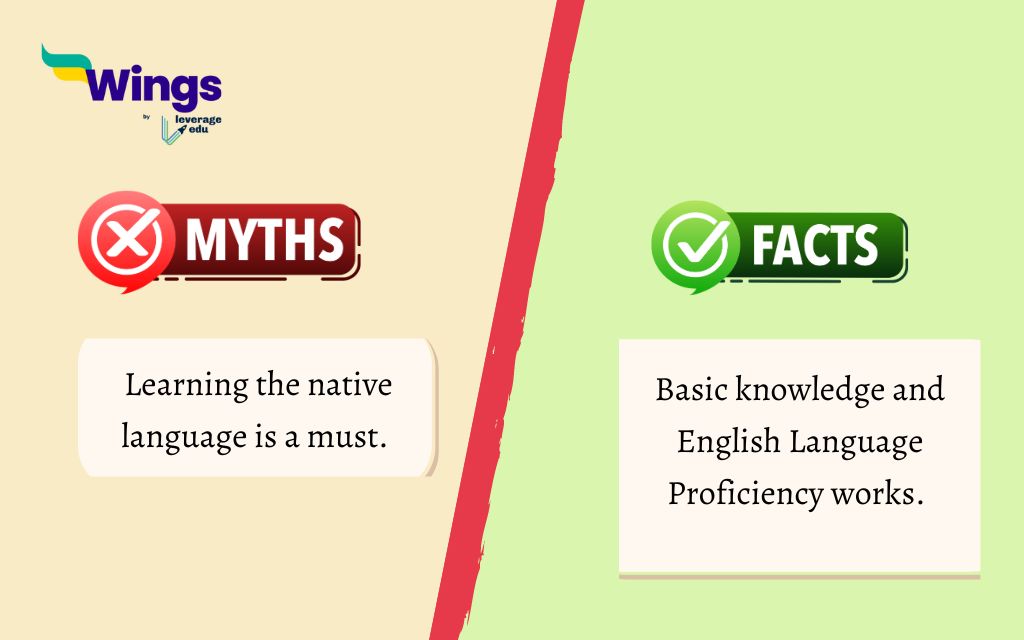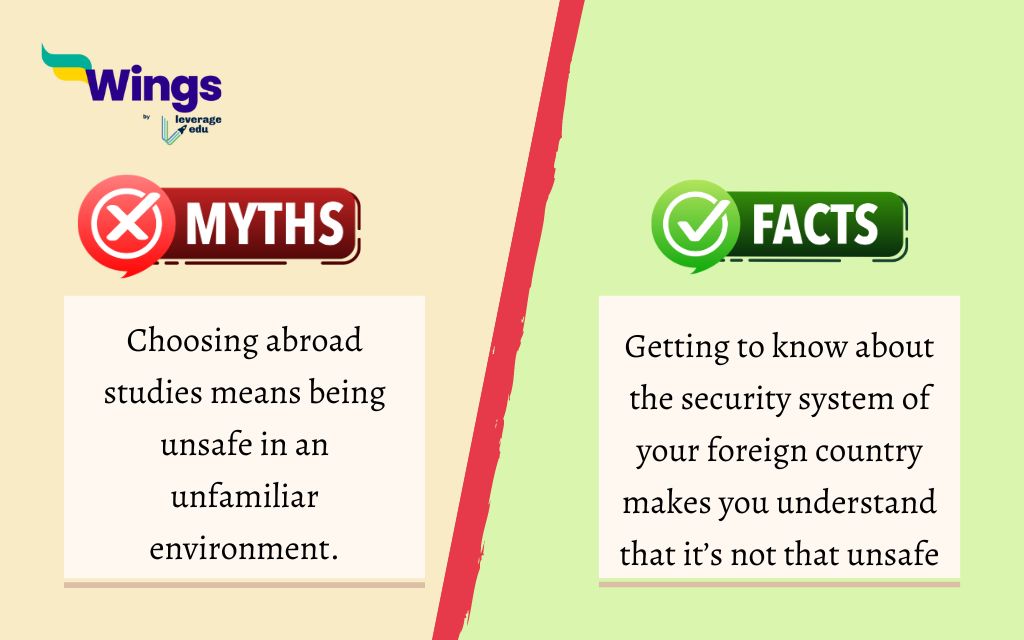Lakhs of people decide to go abroad to study every year. But the wave of myths holds them back. People have different perceptions about studying abroad. Some people who have been abroad pass the same information to other people describing their experience which can be really subjective. Let’s see what are these myths and which facts counter them with the correct information. Let’s check the same out through this blog that puts myths vs facts of abroad studies.
| Myth | Fact |
| Abroad Studies are extremely expensive. | Abroad Studies can, in fact, be affordable. |
- If you have thought of studying abroad, then the concern that it’s highly expensive must have crossed your mind and would have played the role of a major obstacle as you thought about it over and over again. But guess what? You wouldn’t have to worry about it too much. With the right research and resources, you can find out the number of affordable options or routes you can take to make your abroad studies, not a burden.
- Now that we are talking about myths vs facts of abroad studies, it is important to know as abroad studies gain more traction, universities open their doors to financial aid and scholarships to international students; this also helps students manage and afford their expenses and get enrolled in abroad studies at affordable rates.
| Myth | Fact |
| Learning the native language is a must. | Basic knowledge and English Language Proficiency works. |

- A lot of chitter-chatter goes around the myth that if you are planning to go abroad studies then you must be fluent in the language of your native country as well. Well, not really. It depends on the language of instruction of the course of your choice. A lot of countries majorly prefer English language proficiency and if your preferred courses are also taught in the same English language, then you don’t have to consider the fact of being unknown to the native language as such.
- The United States, the United Kingdom, Germany, France, and Australia are the top five destinations for international students, collectively hosting half of the world’s student population abroad. And all of these countries are English-speaking nations, so only an English test would do enough.
| Myth | Fact |
| Studying Abroad means parties, fun and adventure | Studying Abroad is about learning, gaining new experiences, and cultural knowledge |
- Many students who get admission to foreign countries and their universities have this misconception that once they enter into the foreign culture it’s all going to be fun and enjoyment; in the form of attending parties every weekend and romanticising the life of travel. We wouldn’t say that’s a fact. Sure, films largely contribute to this assumption that life abroad is all fun and games. But that’s only until you actually step into reality and realise your dream bubble is about to burst. No, we are not saying that it’s bad just because it’s not entirely a life of parties. Rather a life of new learning is waiting for you, which adds much more to your life experiences.
- A survey by the Institute for International Education of Students (IES) revealed that studying abroad has a profound impact on students’ lives. Nearly all respondents reported significant increases in maturity, self-confidence, and widened worldviews.
| Myth | Fact |
| Choosing abroad studies means being unsafe in an unfamiliar environment. | Getting to know about the security system of your foreign country makes you understand that it’s not that unsafe |

- Every country has their own laws and regulations, and being under the impression that it’s not safe to reside in another country is nothing but a myth. You can in fact be aware of the security system of the country you are going to and realise the provisions that have been set in place for your protection. Do use common knowledge, trust your instincts while learning about the emergency contact numbers of the country and reach out for help whenever you need it.
| Myth | Fact |
| I will not be accepted to a foreign university | More and more universities are opening their doors to international students |
- Do not question your potential to study abroad just because you are overpowered by the myth that a foreign university won’t accept you. There are many countries and universities which are ready to accept international students from all over the world. So, do your research and, who knows, the university of your future might just be around the corner.
- Moreover, the Erasmus Impact Study (2013) found that studying abroad significantly enhances students’ employability prospects, with over 85% of Erasmus students pursuing international careers. The study also revealed that more than 90% of mobile students experienced substantial growth in soft skills. These skills include intercultural competence, adaptability, language proficiency, and communication abilities.
FAQ
Studying abroad offers personal growth, expanded career opportunities, and a global perspective, but it also comes with significant costs and challenges.
Studying abroad involves significant financial investment and adapting to a new culture, language, and academic system.
Studying abroad can be expensive and requires significant adjustment to a new environment, culture, and academic system.
So, were we able to burst some of your myths and facts about abroad studies? Consider joining a free counselling session with Leverage Edu if you plan to study abroad.


 One app for all your study abroad needs
One app for all your study abroad needs












 60,000+ students trusted us with their dreams. Take the first step today!
60,000+ students trusted us with their dreams. Take the first step today!